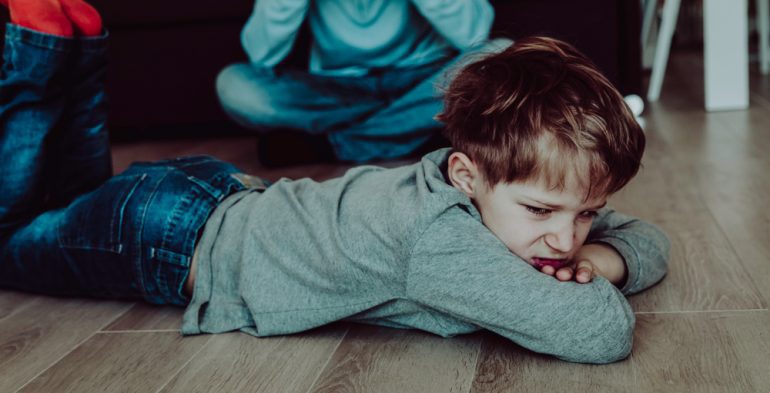
“But if I don’t punish them or give them some sort of consequence or respond in some strong way, how will they learn that [hitting, swearing, breaking things, etc] is wrong? They need to know that it’s not okay! Isn’t that my job, to make it clear to them that the behavior is not okay? If I just let them do it and I don’t tell them it’s wrong, they’ll think that it’s acceptable!”
This is a myth.
There are lots and lots of reasons why punishments and “consequences” (which is usually a euphemism for punishment) don’t work and aren’t a good choice. Whole bunches of reasons. This is just one of them.
 For young children (and sometimes older children, and what the hell, sometimes for adults!), what we know and what we do frequently have little to no relationship to one another. We all know what the “right thing to do” is, and very few of us always do it. They are on parallel tracks. Emotion (especially when accompanied by poor impulse control) and logic/understanding do not cross paths, especially when we are upset.
For young children (and sometimes older children, and what the hell, sometimes for adults!), what we know and what we do frequently have little to no relationship to one another. We all know what the “right thing to do” is, and very few of us always do it. They are on parallel tracks. Emotion (especially when accompanied by poor impulse control) and logic/understanding do not cross paths, especially when we are upset.
No. You don’t need to tell them that it’s not okay. No, they don’t “need to learn that it’s not okay.” No. You don’t need to make decisions based on fear that you are sending a message that destructive or hurtful behavior is okay.
They already know.
They’re struggling. Offer them compassion. Ask them questions, with empathy and curiosity. Be there. Hold space for them. Find out what’s really going on for them, by observing, by connecting, by listening much harder than you talk.
This is our task. To get underneath the behavior. To shift our lens from thinking about how to control behavior and “teaching them” to remembering that they’re doing the best they can with the skills and development that they have at their disposal.
Let the myth die with you.
